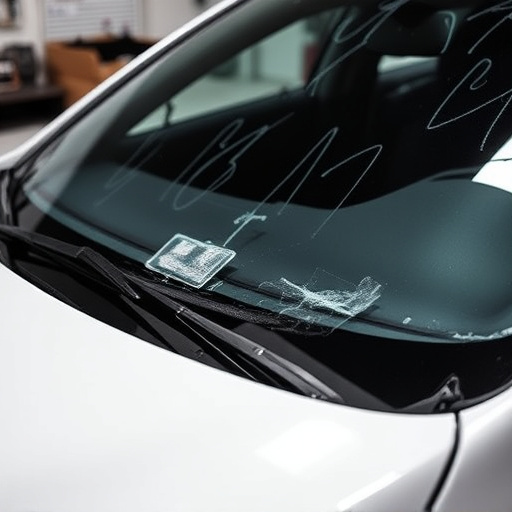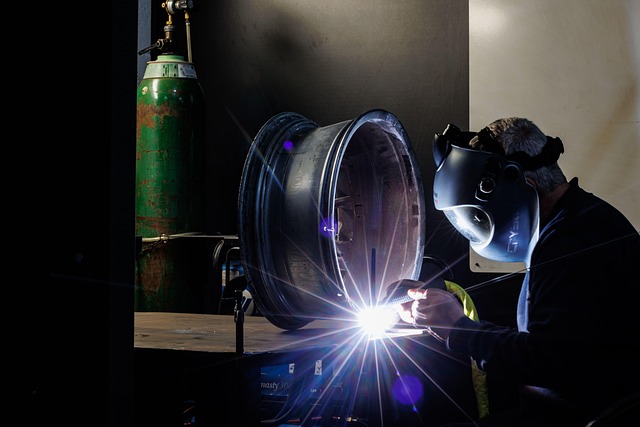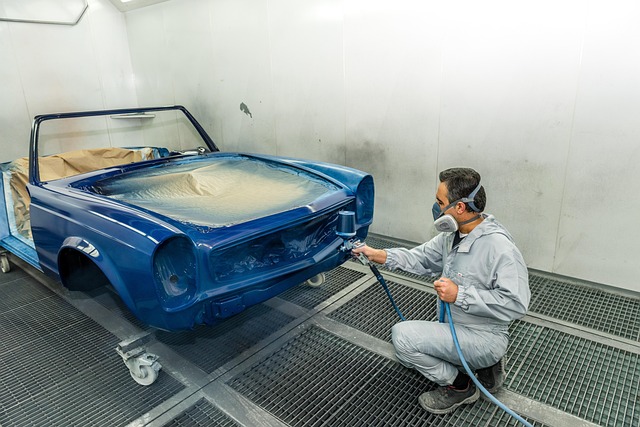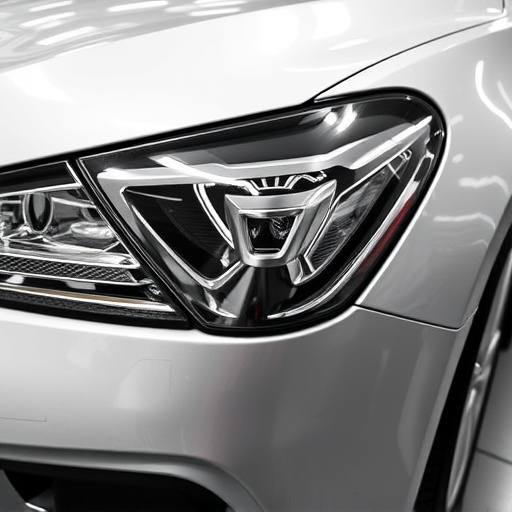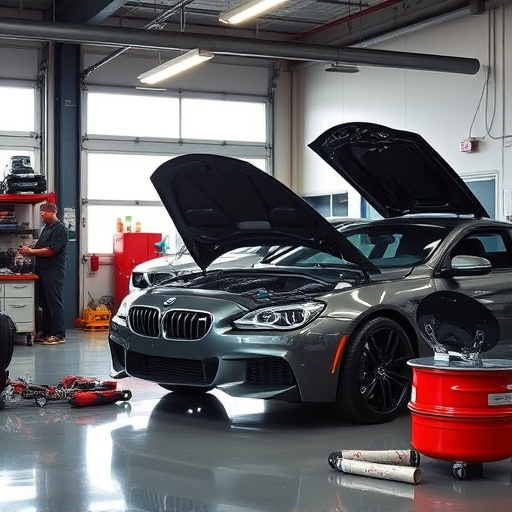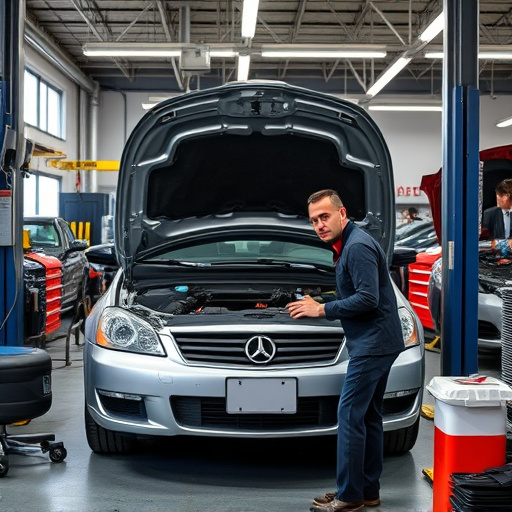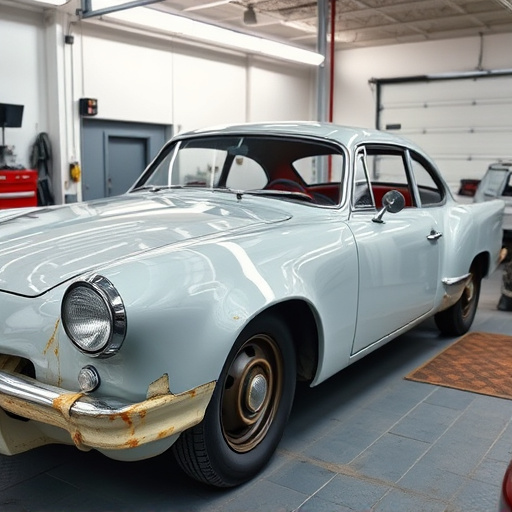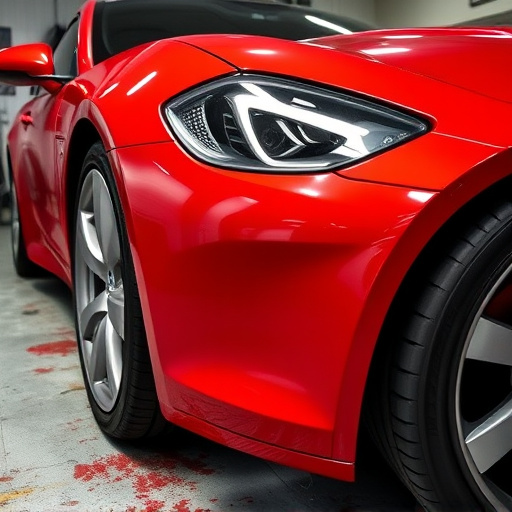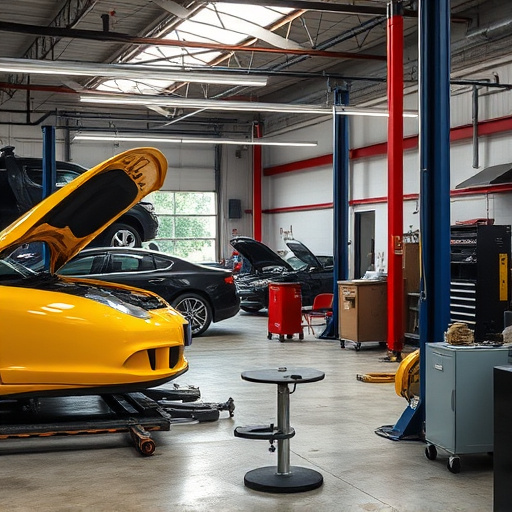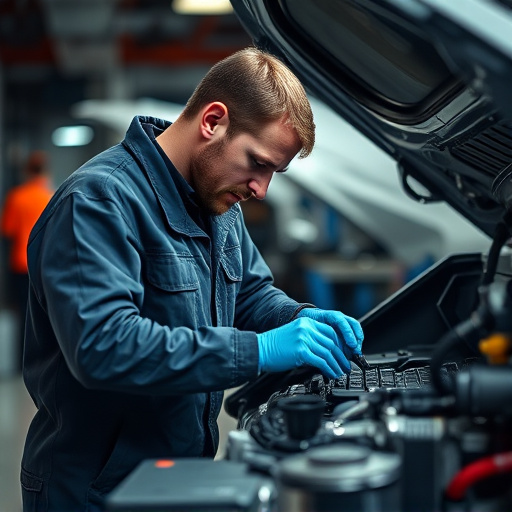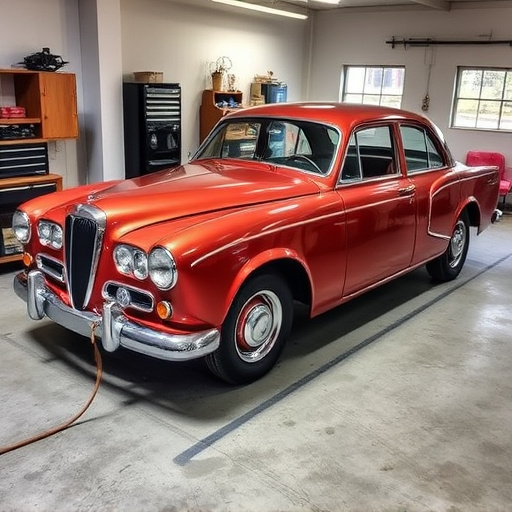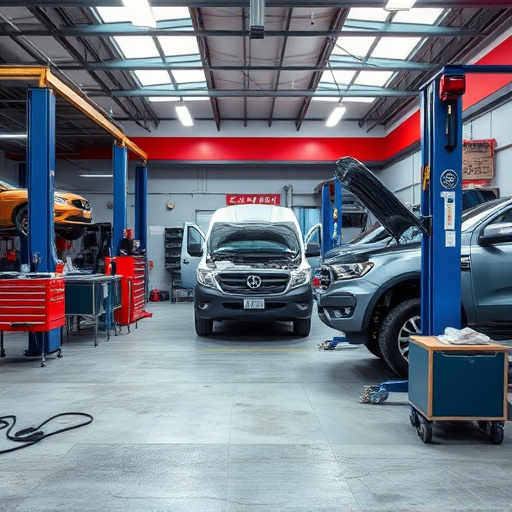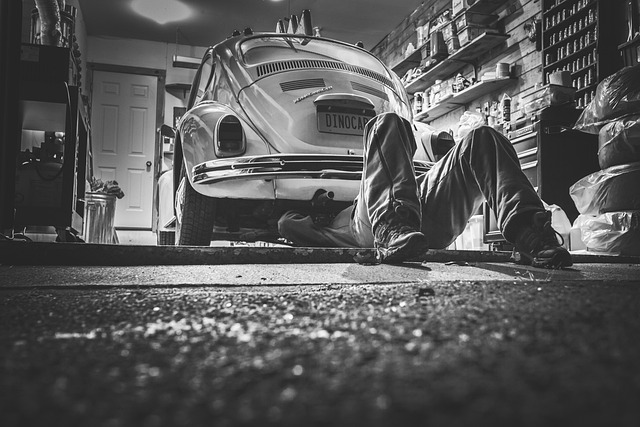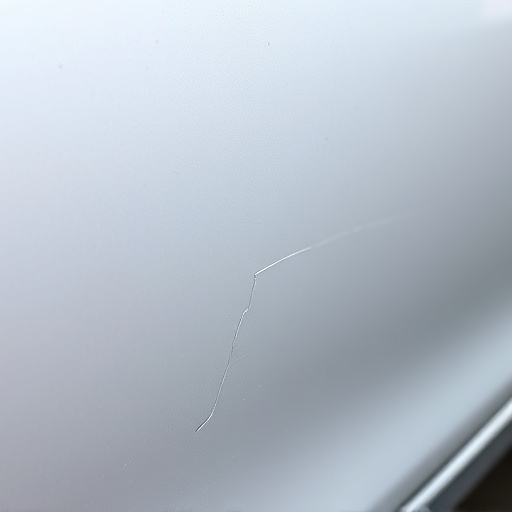Factory Tolerance Restoration is a meticulous process using advanced machinery and non-destructive testing methods to ensure auto parts align with original specifications after assembly or repair, maintaining precision, quality, safety, and reliability across various vehicle models in industries like collision and paintless dent repair.
Shops engaged in factory tolerance restoration jobs face a critical task: ensuring precision across all dimensions. This article delves into the intricate world of how businesses verify accuracy during these meticulous processes. We explore foundational concepts of factory tolerance restoration, unraveling the essential tools and techniques employed for precise verification. Furthermore, we highlight rigorous testing procedures that safeguard quality, offering insights into best practices to maintain excellence in manufacturing.
- Understanding Factory Tolerance Restoration Basics
- Tools and Techniques for Precision Verification
- Ensuring Quality Through Rigorous Testing Procedures
Understanding Factory Tolerance Restoration Basics
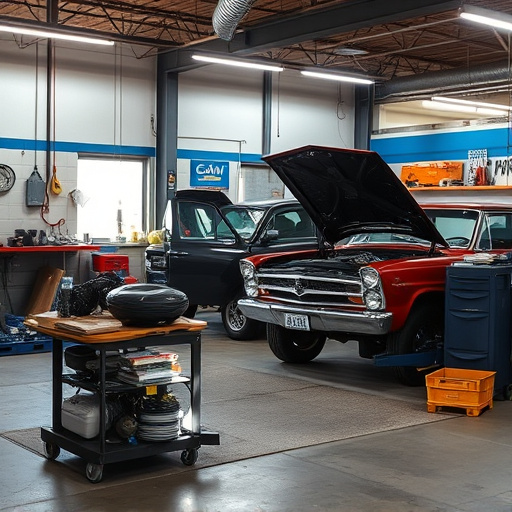
Factory Tolerance Restoration is a critical process that ensures the precision and quality of manufactured parts. It’s a meticulous procedure aimed at re-establishing the original tolerances specified for each component, especially after assembly or repair. In an auto repair shop, this becomes particularly vital, as seen in Mercedes-Benz collision repair services, where restoring factory tolerances guarantees that vehicles return to their pre-accident condition with flawless fit and finish.
This process involves a series of measurements and adjustments using advanced machinery to bring parts back into specifications. For instance, an auto body shop repairing a vehicle’s frame will employ specialized tools to check for any deviations from the manufacturer’s set dimensions. By meticulously addressing these variations, mechanics ensure that every part aligns perfectly, from the chassis to the doors and hood—a key aspect of high-quality automotive collision repair.
Tools and Techniques for Precision Verification
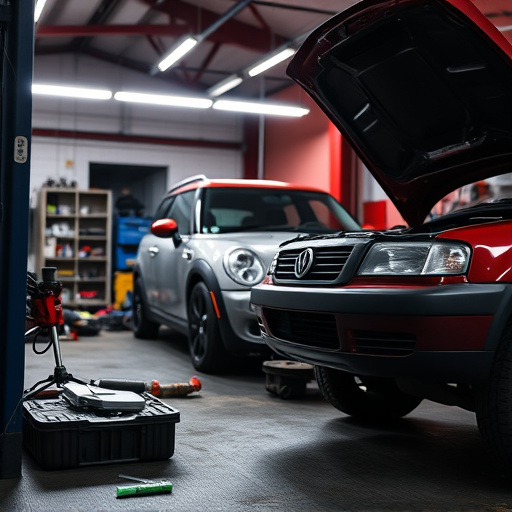
In the realm of factory tolerance restoration, achieving precision is paramount to ensure the integrity and quality of various components, particularly in automotive manufacturing. Tools and techniques employed for precision verification play a crucial role in this process. Modern automotive body shops utilize advanced measurement equipment such as 3D scanners and coordinate measuring machines (CMMs) to accurately assess dimensional accuracy. These devices provide detailed digital models, allowing technicians to detect even the slightest deviations from specified tolerances.
For complex car body restoration or auto body repair tasks, non-destructive testing methods are often used alongside traditional measurement tools. Ultra-violet (UV) light inspection and magnetic particle inspection are examples of techniques that help identify hidden defects without causing damage to the restored parts. In combination, these tools and techniques empower automotive body shops to deliver high-quality factory tolerance restoration jobs, ensuring safety and reliability across diverse vehicle models.
Ensuring Quality Through Rigorous Testing Procedures
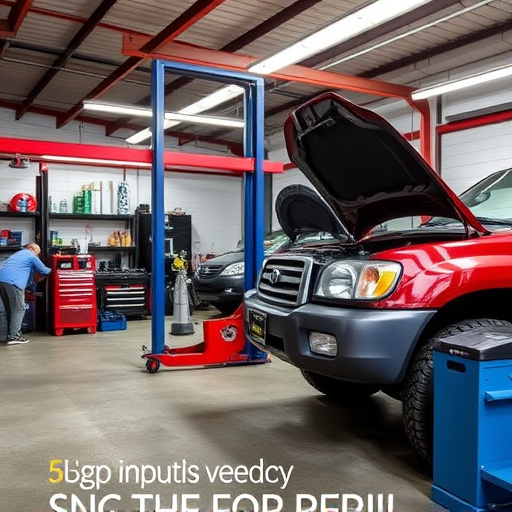
In the realm of factory tolerance restoration, ensuring quality is paramount. Rigorous testing procedures play a crucial role in maintaining precision and accuracy across various stages of the manufacturing process. These tests are designed to detect even the slightest deviations from specified dimensions and tolerances, thereby upholding the integrity of each component. Through advanced measurement tools and techniques, such as coordinate measuring machines (CMMs), shops can meticulously verify the dimensions, shape, and surface finish of parts, ensuring they meet the exacting standards required for top-tier vehicle repair services.
For instance, in paintless dent repair and automotive collision repair, precise measurements are vital to restore a vehicle’s original appearance seamlessly. By employing these testing methods, shops can identify and rectify any discrepancies early in the restoration process, preventing subpar results that might require costly rework. This commitment to rigorous quality control not only guarantees customer satisfaction but also underscores the shop’s expertise in delivering high-quality factory tolerance restoration services for various vehicle makes and models.
Factory tolerance restoration is a meticulous process that demands precision and rigorous testing. By understanding the basics, employing advanced tools and techniques, and adhering to robust quality control measures, shops can ensure the accuracy and reliability of their work. This not only enhances product quality but also builds trust among customers who rely on precise manufacturing for critical applications. In the world of factory tolerance restoration, attention to detail is the key to success.

